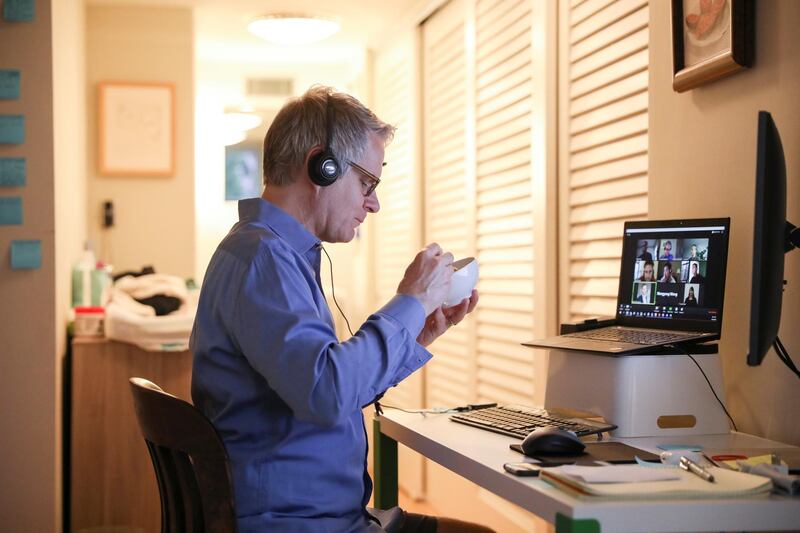Dubai’s new drive to attract remote workers from around the world could help it bounce back from the pandemic faster, experts have said.
A programme was revealed on Wednesday night to encourage people who work remotely long-term to move to the emirate.
The scheme would enable people to live in the emirate for one year and continue to work for their overseas employer, while being able to secure the documents required to rent housing, and sign up for phone, internet, utilities and schools.
The UAE's visa system has traditionally linked a person's residency in the country to their job, although a series of recent changes have made flexible, freelance and part-time work somewhat easier.
Murtaza Khan, managing partner for the Middle East and Africa at Fragomen, an immigration consultancy, said move followed similar schemes in Estonia, one of Europe's fast-growing tech-hubs, and Barbados.
“Before Covid-19 remote work was happening to some degree, it was just never captured by any form of work permit that allowed people to do that," he said.
“But with Covid-19 and the prevalence of remote work it has actually come to the fore. This is Dubai stepping up and putting a formal scheme around it, which is excellent.”
The government made no mention of the need for a visa and there is no requirement to set up an office or buy a business licence.
All remote workers require is a salary of $5,000 per month and proof of their existing employment.
Anir Chatterji, immigration leader at PwC Middle East, said the programme would provide opportunities for a "new wave of expat employees and their families to enter Dubai".
#Dubai launches a unique new programme that enables overseas remote working professionals to live in Dubai while continuing to serve their employers in their home countryhttps://t.co/FUc4FjIB2p pic.twitter.com/3FyIA7r8mb
— Dubai Media Office (@DXBMediaOffice) October 15, 2020
“The remote worker can benefit from Dubai’s strong digital infrastructure, unparalleled travel hub, safe and high-quality lifestyle and zero income tax for individuals,” said Mr Chatterji.
Companies will save on the costs associated with running an office space, while receiving access to the region. Companies based abroad would normally be required to have an office, pay licence fees and secure residency visas or work permits for employees.
Dubai’s economy, which has been hit by impacts to the air industry, tourism and other sectors during the pandemic, would also receive a boost.
“It would help support the economy, because you would have people working in coffee shops and living in apartments,” said Claire Donnelly, who co-runs HR and business consultancy MHC.

“The world is starting to recognise that remote working is a way of life. It’s a great message to show the government is starting to think differently.”
She said remote workers would have to take into account how long they were outside their home country for, and the tax implications that could have.
The pandemic had a major effect on the workplace, as businesses around the world were forced to introduce, or increase, remote working by governments grappling with rising case numbers.
For some companies, which recognise the cost-saving benefits, remote working is now here to stay.
Many are now downsizing as they recognise they require less space, and less investment in offices.
Enquiries about flexible workspaces have soared, said Bernard Lee, chief executive of GlassQube Coworking, a workspace operator which has four locations in Abu Dhabi.
It offers co-working, as well as private single and shared office space.
“We are getting a lot of enquiries from larger enterprise-type clients who in the past have not shown any interest in flexible workspaces," he said.
“We have one deal we are just about to sign for an entire floor in one of our locations."
The company is yet to enter the Dubai market, which has close to 50 similar operators, he said. But it is interested, if it can find the right building in the right location.
The news has made the prospect even more attractive.
“Let’s see how it unfolds,” said Mr Lee.














